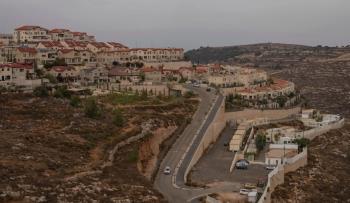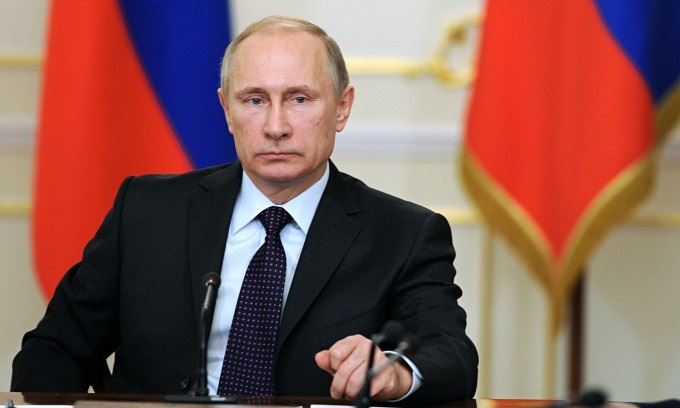Alwaght- Yesterday’s bomb blast that ripped through St Petersburg's subway train was sure a terrorist attack, but it, the analysts say, declined to affect the Russian leaders' determination in their fight against terrorism. Moscow's reaction, which was described as professional by the analysts, was stronger than the incident's effects. The Russians steered clear of exploiting the attack to promote Islamophobic atmosphere as the West does.
The Russian officials stopped short of publishing the initial information they found about the attack, adding that a comprehensive investigation case has been launched. The Russian leaders said their war against terrorism will go on, unaffected by the bombing operation in the subway of the capital of the imperial Russia.
The analysts believe that blasts in Russia are not surprising as Moscow is on the front line of a real battle against terror in Syria.
Some facts about the attack
- The Russian authorities said that the attack on St Petersburg metro stations killed 14 people and injured 50. This is the initial report released by the Russian security officials.
- The blast hit the third car of the train that was moving between the Senayya Ploshchad and Tekhnologichesky Institut stations. The security authorities also said that they found and defused another explosive device in the metro system.
- The explosion power of the bomb was reported to be as equal as power of 200-300 grams of TNT.
- The Russian officials since the initial moments declared the blast as an act of terror because the bomb they deactivated was a handmade devise rigged with shrapnel to kill as many people as possible at the time of explosion.
The drives and the timing of the attack
A series of facts can be regarded to present a significant analysis:
First, the attack comes while Russia is pressing forward with its anti-terror air campaign in Syria. The Russian air force's fighter jets in past three days carried out over 200 airstrikes against the positions of the terrorist groups in Idlib province in northwestern Syria.
Second, the timing and place were never chosen accidentally, suggest the experts. The attacker picked St Petersburg, where the Russian President Vladimir Putin at the time was holding a meeting with his Belarusian counterpart President Alexander Lukashenko.
And third, Yesterday’s blast was the deadliest since Moscow metro attacks in 2010. At the same time, the attack comes as the Western media stepped up propaganda against Moscow, talking about arrival of the “Russian spring” following the opposition protests recently held in a number of the Russian cities.
Analysis: Russia is stronger than terrorism
A couple of results can be reached from the above-mentioned details:
1. The attack is not unlinked to the terrorist groups such as Al-Qaeda, Al-Nusra Front, and ISIS. The analysts suggest that the explosion could be a retaliatory attack against Moscow which is engaged in a counterterror war in Syria.
2. Also the move could be made by the terrorist groups as an act aimed at uplifting their fighters' morale as they began to lose the edge in front of a strong Russian campaign. Yesterday’s attack was different from its Western likes, not in its terrorist nature but in the fact that it is targeting Russia which is fighting terrorism with honesty, just unlike what the analysts call the Western hypocrisy in dealing with the terrorists.
3. There must be a focus on the Russian reaction which was described as professional and stable, without any exploitation of the incident to seek its political interests both at home and abroad. This is, however, an ordinary job in the West. When such incidents take place, the political sides abuse the case in favor of their agenda in the elections or in favor of the propaganda on the forged dangers of Islam for the Western communities.
4. The attack should not be seen separate from the Western promotion for the so-called Russian spring and efforts to generate chaos across Russia using the opposition protests. However, the West's objective is not easy to obtain especially that Russia has been in the heart of serious fight against terrorism since two decades and that this is not the first time an explosion rocks the Russian public transportation.
4. Russia is considered as a winner of counterterror battle, because while more than 5,000 fighters from Caucasus region– majorly from Chechenia and Dagestan– are fighting along with other fellow ISIS fighters, what happened was way less damaging than what could happen if it was not for Moscow’s anti-terror campaign run in association with its allies like Iran and Syria. Actually these moves built for Russia a preemptive policy meant to repel the terrorist attacks or at least minimize their effects on the citizens.
6. Acts of terror, no matter how they happen, are doomed to fail. What happened will deliver the reverse domestically and internationally. The analysts suggest that it will strengthen the Russian president’s stances through granting him further social credibility, not to mention that his view on fighting the terrorism will enjoy greater support worldwide.
So Russia comes out a winner after the metro terrorist attack in St Petersburg. Putin appeared to talk from a strong position during his comments on the blast. He displayed his big power to maintain the consequences.. Russia is said to have managed to contain the effects of the attack thanks to its experience taken from its war against terrorism.



























